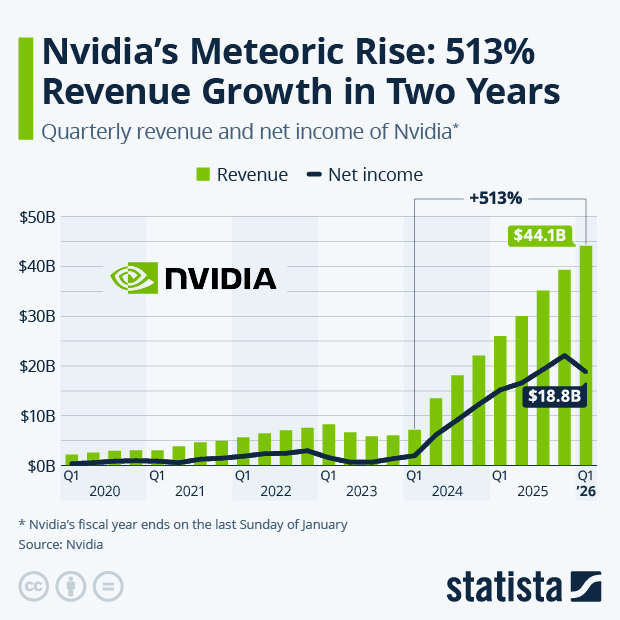Nvidia’s valuation per employee is reaching new heights
Nvidia’s execution has been nothing short of remarkable. Very, very few companies get to put up the kind of revenue growth numbers that Jensen Huang’s company has printed. Even fewer make huge margins while growing that fast. None have done it on this scale, or with just 36,000 employees at the latest count.
Indeed, compared to the rest of its Big Tech peers, Nvidia’s revenue and net profit per employee are in a league of their own. And now, with its valuation at $4 trillion, the market is ascribing more than $111 million of equity value per employee to Nvidia. That’s even more than the frothy value ascribed to Palantir’s tiny workforce (4,000 people).
Dataset
| Company | Market Cap per Employee |
|---|---|
| Nvidia | $111M |
| Palantir | $84M |
| Meta | $25M |
| Apple | $19M |
| Microsoft | $16M |
| Alphabet | $12M |
| Tesla | $7.9M |
| Amazon | $1.5M |
| Walmart | $0.4M |

.webp)



.webp)